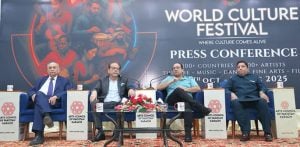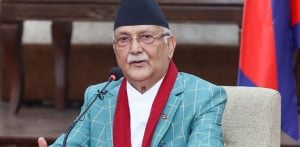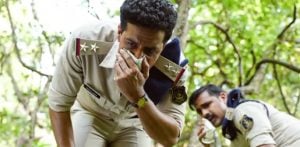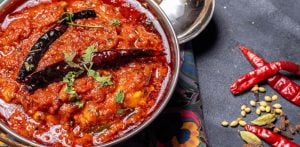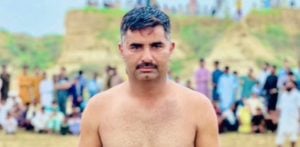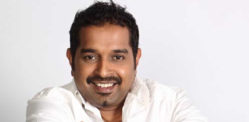"I always knew storytelling was my calling."
Rupa Mahadevan has deservedly won the 2024 Joffe Prize for her crime thriller, The Goddess of Death.
The novel is an atmospheric canvas of psychological storytelling, showcasing Rupa’s narrative skills to a high degree.
She wins a two-book publishing deal with Joffe Books, a £1,000 cash prize, and a £25,000 audiobook deal for her novel.
This is Britain’s biggest crime prize.
The Joffe Books Prize for Crime Writers of Colour was established in 2021.
It looks to actively seek out writers from communities that are underrepresented in crime fiction and support them in building sustainable careers.
Talking about The Goddess of Death, the judges said:
“This is a tense, fast-paced psychological thriller, with overlapping layers of intrigue and flawed narrators — all of whom have secrets.
“The eerie setting is fantastic and really adds to the undercurrent of unease and build-up of suspense.
“A truly gripping thriller with a fresh edge that sets it apart.”
In our exclusive interview, Rupa delved into her book and her thoughts upon winning the Joffe Prize.
Can you tell us about The Goddess of Death? What is the story?
 The Goddess of Death is a psychological thriller set in a farmhouse in Oban, Scotland, where a group of friends gather for a holiday.
The Goddess of Death is a psychological thriller set in a farmhouse in Oban, Scotland, where a group of friends gather for a holiday.
They’re celebrating Navratri, a Hindu festival celebrated with a set up of dolls in South India.
When a storm rolls in, Leela—newly married to one of the group—finds a stabbed doll under a goddess statue.
She’s convinced it’s a warning of a murder about to happen.
What follows is her race to connect the dots and uncover the truth before it’s too late.
As a story, it is very relevant to the modern world exploring jealousy within a friendship group – where everyone has a secret, and no one is above killing to keep it that way.
It also explores the cross-cultural aspects of my lived experience.
How did this story take root in your mind?
 In a way, I like to think this story always existed—it just hadn’t been written down yet.
In a way, I like to think this story always existed—it just hadn’t been written down yet.
Golu (which translates to “display”)—the dolls we set up during Navratri—has always been a big part of my childhood.
Navratri is my favourite festival, even more than Diwali, which is far more popular.
There’s something so visual and colourful about it—a way of storytelling that really captured my imagination.
Growing up, me and my sister used to compete over whose side of dolls told a better story.
Thinking back, that is where my love of stories started.
At the same time, I’ve always been passionate about crime stories. You’d think it would be a no-brainer to combine the two.
The nine nights of Navratri, with its theme of good versus evil, naturally lend themselves to the structure of a crime thriller.
But it wasn’t until a writer friend, Angela Nurse, asked if I’d ever thought of weaving it into a story that the idea truly clicked.
And the rest, as they say, is history.
What fascinates you about thrillers and crime?
 Thrillers fascinate me with their complex plots and like many readers.
Thrillers fascinate me with their complex plots and like many readers.
I enjoy the mental challenge of solving the whodunit puzzle and knowing, at least in this curated world, that justice will always be served.
In modern literature, I think we’ve moved beyond the straightforward whodunit into the realm of howdunit.
But as a writer, it’s the whydunit that truly captivates me.
I love delving into the complexities of characters, exploring what makes them tick, and really getting into their minds.
The workings of the human mind never fail to fascinate me.
What inspired you to become an author?
 I’ve always been passionate about stories and how they transcend centuries and languages.
I’ve always been passionate about stories and how they transcend centuries and languages.
Growing up in India, I remember borrowing books from a mobile library that I visited sporadically, and we were only allowed one book at a time.
When I ran out of stories to read before the next visit, I would make up my own stories.
Looking back, I think I always knew storytelling was my calling.
It’s a privilege to create something that can outlive you and become part of your legacy—that’s where my inspiration comes from.
The real turning point came when I attended a book launch event and met local author Caron McKinlay.
She loved the idea of a book (which I like to call Book Zero). I’d probably never write, but her belief in my pitch and support for my craft set the ball rolling.
That, and the approach of a milestone birthday, gave me the push I needed to start writing in earnest.
How did winning the Joffe Prize change your outlook on life and your career?
 English is my second language, and as a writer of colour, it’s easy to give in to that tiny voice in your head whispering: “I’m not good enough – my story isn’t good enough.”
English is my second language, and as a writer of colour, it’s easy to give in to that tiny voice in your head whispering: “I’m not good enough – my story isn’t good enough.”
Winning the Joffe prize took those insecurities and shredded them to pieces. It is the biggest validation so far in my writing career.
I started taking writing seriously when I turned 39, giving myself a two-year deadline: either secure a publishing deal or give up writing altogether.
With less than six months left on that self-imposed timeline, winning the prize was life-changing.
It was the difference between becoming a published author and walking away from writing, as juggling two full-time jobs indefinitely wasn’t sustainable.
I’m incredibly grateful that didn’t happen, thanks to the commitment of Joffe Books and Audible to supporting underrepresented authors like me.
What advice would you give young people who want to be novelists?
 I’m not sure I’ve reached a level where I can offer advice to young novelists, but if there’s one thing I could tell my past self, it would be this: believe in yourself.
I’m not sure I’ve reached a level where I can offer advice to young novelists, but if there’s one thing I could tell my past self, it would be this: believe in yourself.
Take feedback gratefully—it’s an opportunity to hone your craft. The best advice I’ve been given so far includes three key points:
- Read like a writer. When you find a passage you love, reread it and figure out what makes it special. Then, try to bring that magic into your own writing.
- Write like a reader. Create the kind of story you would love to read. When you write with this mindset, the process feels more natural.
- Approach each chapter like a scene. Always remember that your readers don’t know everything you know about the story. It’s your job to guide them through it step by step.
These, even though not my own, have served me well on my writing journey.
And above all, just keep writing, one word after the next—even when it doesn’t feel perfect.
Are there any writers or celebrities you admire? If so, in what ways?
 I admire plenty of writers for different reasons. Agatha Christie, for instance, is a timeless favourite—there’s a reason she’s called the Queen of Crime.
I admire plenty of writers for different reasons. Agatha Christie, for instance, is a timeless favourite—there’s a reason she’s called the Queen of Crime.
More recently, I’ve come to admire Lucy Foley for her intricate plotting and Lisa Jewell for her flawless characterisation.
In Tamil, my first language, Kalki Krishnamoorthy, is a legendary writer and an all-time favourite.
He’s a master storyteller who can transport readers effortlessly to the glorious days of the past.
One of my biggest regrets is only being bilingual. If I knew how to read in more languages, I could explore even more stories.
And I have a major crush on folklores—they’re a treasure trove of wisdom, sugar-coated as beautiful stories.
What do you hope readers should take away from Goddess of Death?
 Nothing—it’s a crime thriller!
Nothing—it’s a crime thriller!
Jokes aside, my primary goal is for readers to enjoy the story and connect with the characters.
As I mentioned before, in any story, it’s the whydunit that fascinates me as a writer.
I hope readers will step into my characters’ shoes, understand what drove them to act as they did and use their own perspectives to judge them.
Readers are incredibly intelligent; they don’t need me to interpret the story for them.
My job as a writer is to present the facts as they are without passing judgment.
That’s exactly what I aimed to do with The Goddess of Death.
The Goddess of Death is a compelling and captivating novel. It marks a stunning start to a writing career for Rupa Mahadevan.
Of winning the Joffe Prize, she adds: “Winning the Joffe Books Prize is an absolute dream come true.
“As a writer, especially a writer of colour, it’s so easy to let insecurities take over.
“This win has given the writer in me the biggest validation, and I couldn’t be more grateful.
“I’m deeply honoured and thrilled to be working with Joffe Books, whose dedication to promoting underrepresented voices has made this incredible milestone possible.”
We congratulate Rupa for The Goddess of Death and wish her the best as she embarks on new challenges.






